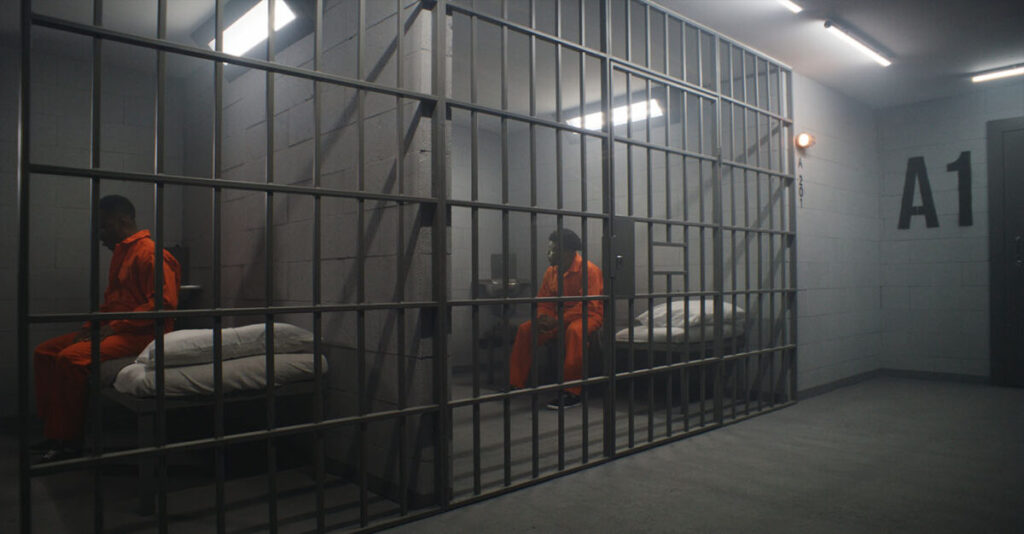By Stacy M. Brown
NNPA Senior National
Correspondent
A disturbing discovery in Maryland has reignited calls for urgent reform to the state’s youth justice system, one that critics say still reflects the racism and cruelty of its 19th-century past.
In a wooded area near the Cheltenham Youth Detention Center in Prince George’s County, at least 100 unmarked graves of Black children—some dating back to the 1800s—have been uncovered near the former House of Reformation and Instruction for Colored Children.
Originally established in 1870 to detain Black boys as young as five, the facility operated under brutal conditions that included forced labor and systemic neglect. The site, long ignored by state officials, serves as a chilling reminder of the state’s history of warehousing Black youth. But according to The Sentencing Project, that past is tragically still present.

“Maryland’s shameful legacy of racism, neglect, and abuse in its treatment of young lives continues to this day,” said Olivia Naugle, Youth Justice Campaign Strategist at The Sentencing Project. “More than 150 years later, though desegregated by the courts and operating under a new name, it still overwhelmingly detains youth of color, who are often charged as if they were adults.”
Maryland now ranks fourth in the country for incarcerating people for crimes committed as children. Per capita, it charges more youth as adults than almost any other state, second only to Alabama. Black children are seven times more likely to be charged as adults than their white peers.
Naugle and other advocates point to Maryland’s expansive list of 33 offenses that require automatic adult charges for youth, one of the most extreme in the nation. While over half of U.S. states have moved to restrict or eliminate such automatic charging mechanisms, Maryland remains an outlier.
Senator William C. Smith Jr., who chairs the state Senate’s Judicial Proceedings Committee, has vowed to reintroduce legislation narrowing the list of crimes that send children directly to adult court. His proposed reform would reserve adult charges only for the most severe offenses, such as murder and rape.
“This is a critical step toward addressing the racial disparities that plague Maryland’s youth justice system,” Naugle added. “We applaud Senator Smith for tackling this deeply flawed system of youth injustice.”
The Sentencing Project’s research paints a damning picture nationwide, but particularly in states like Maryland. Although the number of children tried as adults in the U.S. has dropped from 250,000 annually at the turn of the century to 53,000 by 2019, the overwhelming majority of those still being transferred are youth of color. Black youth—who make up less than 15% of the national youth population—comprise 63% of those detained pending criminal court hearings.
The practice of treating children as adults in the legal system surged in the 1990s, fueled by racist myths about so-called “super-predator” youth. The policies disproportionately targeted Black and Brown children and have been thoroughly debunked by crime data and behavioral science. Violent juvenile crime has declined, and neurological research shows that young people are less capable of impulse control and more amenable to rehabilitation than adults.
Still, children sent to adult prisons are at a significantly higher risk of suicide, sexual assault, and long-term trauma. The Sentencing Project reports that housing children in adult jails increases recidivism and severely hinders their ability to reintegrate into society. Youth convicted in adult court often lose access to record expungement, educational and vocational programs, and community-based rehabilitation services. In 2019 alone, 76 minors were held in adult jails in Maryland.
Another 16 were housed in adult prisons. Most of those detained were youth of color. Advocates say the rediscovery of the graves near Cheltenham offers a sobering parallel between past and present. The boys buried there were labeled “inmates” on death certificates dating as far back as 1898. They died behind bars for offenses ranging from petty theft to simply being labeled “incorrigible.” Their names and lives were long forgotten—until now.
“They can’t be made whole,” said Rosemary Clark, a genealogist who uncovered over 100 death certificates tied to the reform school. “But they at least deserve some respect in death that they didn’t get in life.”
Senator Smith and former Department of Juvenile Services Secretary Vincent Schiraldi have applied for funding to preserve and memorialize the site. However, advocates insist that memorials alone are insufficient.
“We have to make sure we don’t repeat the mistakes of the past,” Schiraldi told the Washington Post. “They were segregating kids by race and treating the kids of color more poorly and burying them in a potter’s field. But at least they were taking them out of the adult prisons of the day.”
For Naugle and The Sentencing Project, Maryland’s modern policies show that not enough has changed. “It is long overdue that Maryland ends this harmful, ineffective policy,” Naugle said. “If we want to break the cycle, we must stop pretending children are adults. We must finally treat them like children, especially children of color who’ve borne the brunt of this system for over a century.”




